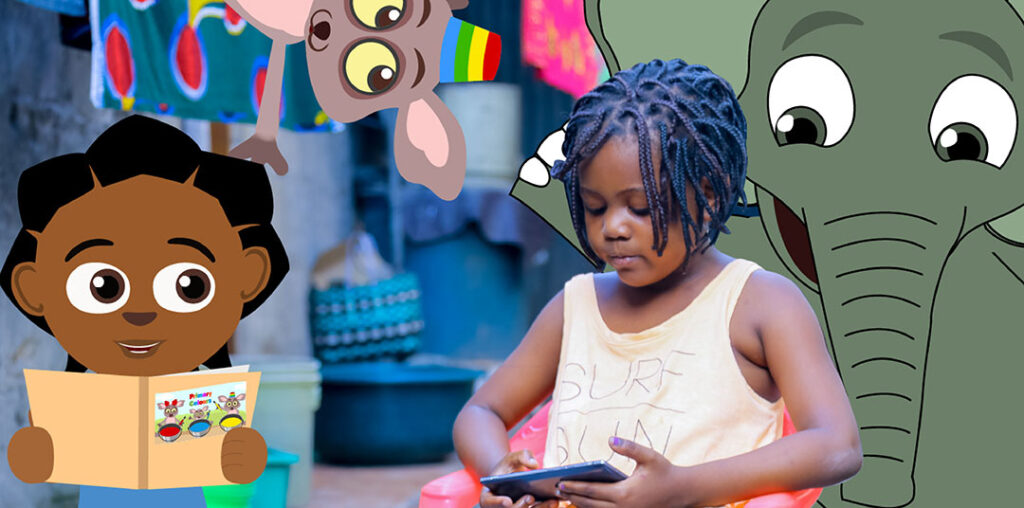ADF STAFF
When COVID-19 hit Sub-Saharan Africa in early March, Tanzanian nonprofit Ubongo knew there would be an urgent demand for education programming for children stuck at home.
“We reach kids with top-quality educational content in local languages on the technologies they have access to, which is TV, radio and simple mobile devices,” Iman Lipumba, Ubongo’s head of marketing and communications, told ADF.
Online learning is a scant option in Sub-Saharan African, where 90% of learners do not have access to computers and 82% do not have internet access.
Enter Ubongo, with colorful cartoon characters such as Akili, an adorable 4-year-old who lives in the foothills of Mount Kilimanjaro and learns language, numbers, art and social-emotional skills.
Akili also helps children learn how to avoid COVID-19.
In August, Ubongo teamed up with the United Nations’ World Health Organization to share a video singalong featuring Akili showing children how to properly wash their hands.
Now, Akili and Ubongo are expanding across the continent.
“We quickly made our entire library of content available online and shared it with TV and radio stations, ministries of education and NGOs [nongovernmental organizations] across Africa,” Lipumba said. “In a month, we launched 10-plus new stations, and within three months we expanded from 11 to 18 countries.”
Created in Tanzania in 2014, Ubongo has drawn funding from commercial revenue and grants from the United States’ Development Innovation Ventures, England’s Human Development Innovation Fund, and several private foundations.
Lipumba was born in Tanzania and recalls growing up with minimal access to African-made children’s programming.
“I know firsthand the transformative power of seeing yourself reflected in the media you consume,” she said. “The stories and characters we love in youth stick with us throughout life. They help us form our ideas of what we can be, and I’m incredibly humbled to be part of an organization that’s creating stories that equip kids in Africa to realize their full potential.”
Closing schools was one of the first measures taken across the globe to stem the spread of COVID-19, making remote learning the new normal for children everywhere.
Closures peaked in early May, affecting more than 91% of enrolled learners — nearly 1.6 billion students in 192 countries, according to data from the United Nations Educational, Scientific and Cultural Organization (UNESCO).
Many African nations scrambled to create or expand at-home learning plans and found television to be an important part of the solution.
“Never before have we witnessed educational disruption on such a scale,” said UNESCO Director-General Audrey Azoulay. “Partnership is the only way forward.”
Other notable remote-learning TV endeavors:
- Côte d’Ivoire: Launched lessons broadcast on television in collaboration with UNICEF with support from a Global Partnership for Education grant of $70,000.
- Kenya: Broadcast programming on the Edu Channel TV owned by the Kenya Institute for Curriculum Development.
- Libya: Partnered with local television stations to broadcast compulsory lessons for middle and secondary schoolchildren.
- Madagascar: Launched educational television instruction with mathematics taught in French and aimed at primary school students. Also collaborated with the mediaon edutainment program Kilasy Pour Tous (Kilasy For All), which was broadcast on television every morning.
- Mauritius: Introduced TV programs for grades one through nine on a dedicated education channel.
- South Africa: Partnered with South African Broadcasting Corp. (SABC) to launchTV curriculum for learners in grades 10, 11, 12 and Early Childhood Development across three SABC channels.

